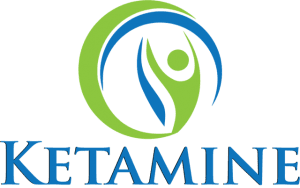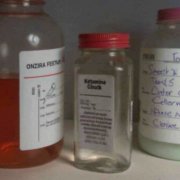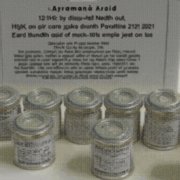Obtain ketamine without prescription is a topic that attracts significant curiosity, particularly for those seeking non-traditional paths to explore its potential mental health benefits. Here’s a quick overview:
- Off-label Use for Mental Health: Ketamine is increasingly considered for off-label use in treating conditions like depression and PTSD.
- Non-Prescription Options: Opportunities for obtaining ketamine without a prescription often involve compounded products and telemedicine platforms.
- Legal Considerations: While access is possible, it’s important to understand the legal risks associated with non-prescription use.
Ketamine, once primarily a veterinary anesthetic, is now in the spotlight for its mind-altering effects and potential to treat mental health issues. Clinics are offering infusion therapies, targeting those with treatment-resistant depression who cannot find relief through conventional means. Patients and practitioners are navigating the uncharted legal waters of off-label ketamine use, balancing therapeutic benefits with regulatory compliance.
Experts in the field provide guidance on how to obtain ketamine without prescription, drawing from years of following ketamine’s journey from a veterinary tool to a potential mental health lifeline.

Understanding Ketamine
Ketamine is a powerful anesthetic that was originally developed for medical use in the 1960s. It has a long history of use in both human and veterinary medicine, particularly for inducing anesthesia during surgeries. Its primary function as an anesthetic is due to its ability to block pain and provide sedation quickly and effectively.
At the core of ketamine’s action is its role as an NMDA receptor antagonist. This means it blocks the N-methyl-D-aspartate (NMDA) receptors in the brain, which are involved in transmitting pain signals and are also linked to mood regulation. By interfering with these receptors, ketamine can produce profound effects on mood and perception, which is why it’s being explored for psychiatric uses.
One of the most notable effects of ketamine is dissociation. This refers to a sensation where users feel detached from their body or environment. It can create an out-of-body experience, often described as floating or being in a dreamlike state. This dissociative effect is part of what makes ketamine both a therapeutic candidate for mental health treatment and a substance prone to abuse.

The dissociative properties of ketamine have made it popular in certain recreational settings, but they also pose risks when the drug is used without proper medical supervision. These effects can vary significantly depending on the dose and the method of administration, leading to experiences ranging from mild euphoria to intense hallucinations.
As ketamine continues to gain attention for its potential mental health benefits, it’s important to understand both its medical roots and the complex effects it can have on the brain. Whether used in a clinical setting or sought after for its off-label uses, ketamine’s impact on the NMDA receptors and its dissociative properties are central to its effects and potential risks.
Obtain Ketamine Without Prescription
In recent years, there has been a growing interest in obtaining ketamine without a prescription, especially for at-home use. This trend is largely driven by the rise of compounded ketamine products and the convenience offered by telemedicine platforms.
Compounded Ketamine
Compounded ketamine refers to formulations that are customized by pharmacists based on a healthcare provider’s prescription. These products are not FDA-approved, which means their dosages can vary significantly. This variability poses challenges in predicting the potential risks associated with their use. Despite the lack of FDA approval for psychiatric indications, some patients seek compounded ketamine for its potential to alleviate symptoms of treatment-resistant depression and other mental health conditions.
Telemedicine Platforms
Telemedicine platforms have made it easier for patients to access ketamine treatments from the comfort of their homes. These services connect patients with healthcare providers who can prescribe ketamine, often in sublingual or oral forms. While telemedicine offers convenience, it also introduces risks, as the lack of onsite monitoring by healthcare professionals can lead to misuse or adverse effects going unnoticed.
At-Home Use
The at-home use of ketamine, especially when obtained without a prescription, raises several safety concerns. Without professional supervision, patients may experience side effects such as hallucinations, increased blood pressure, or even respiratory depression. The absence of a healthcare provider increases the risk of abuse, as ketamine can produce dissociative and euphoric effects that some may find appealing for non-medical use.
In summary, while obtaining ketamine without a prescription through compounded products and telemedicine platforms is possible, it is crucial to approach this option with caution. The lack of standardized dosing and professional oversight can lead to significant health risks. As the interest in ketamine for mental health treatment grows, understanding these risks and the legal landscape surrounding its use is more important than ever.
Risks and Safety Concerns
When considering the use of ketamine, especially without a prescription, be aware of the potential risks and safety concerns involved. These include abuse and misuse, psychiatric events, and respiratory depression.
Abuse and Misuse
Psychiatric Events
The use of ketamine, particularly in unsupervised settings, can lead to serious psychiatric events. Users might experience hallucinations or psychosis-like effects, which can be distressing and dangerous if not managed properly. The lack of FDA-approved dosing guidelines for psychiatric disorders further complicates its use, as it becomes difficult to predict how individuals will react to varying dosages.
Respiratory Depression
One of the most concerning potential side effects of ketamine use is respiratory depression. This condition involves slowed breathing, which can lead to life-threatening situations, especially if ketamine is used in higher doses. Without medical supervision, the risk of respiratory issues increases, underscoring the importance of having a healthcare provider present or accessible during treatment.
In conclusion, while ketamine has shown promise in treating certain mental health conditions, its at-home use without a prescription carries significant risks. Understanding these risks is crucial for anyone considering ketamine treatment outside of a clinical setting. As we steer the complex landscape of ketamine use, prioritize safety and seek professional guidance.
Legal and Regulatory Landscape
Navigating the legal and regulatory landscape of ketamine can be complex, given its classification and the current state of its approval for medical use. Here’s what you need to know:
FDA Approval
Ketamine is not FDA-approved for the treatment of psychiatric disorders. This means that any use for these conditions is considered “off-label.” While some clinics offer ketamine therapy for mental health issues, it’s important to note that these uses are not officially sanctioned by the FDA. The lack of FDA-approved dosing guidelines for psychiatric disorders contributes to the variability in treatment approaches and potential risks.
Marketing Loopholes
Despite the lack of FDA approval for certain uses, ketamine is still marketed and used in various ways, sometimes exploiting loopholes in the regulatory system. For instance, compounded ketamine products are available from some telemedicine platforms and compounders. These products can be custom to specific patient needs but come with their own set of concerns, including inconsistent dosages and potential safety issues. The FDA has raised alarms about the safety of compounded ketamine, emphasizing the need for more research to establish safe and effective dosing.
Schedule III Controlled Substance
Ketamine’s classification as a Schedule III controlled substance under the Controlled Substances Act (CSA) indicates its potential for abuse and dependence. This classification imposes strict regulations on its distribution, storage, and prescription. Healthcare providers must adhere to these guidelines, including maintaining accurate records and ensuring secure storage, to avoid legal repercussions.
Understanding these legal and regulatory aspects is crucial for anyone considering ketamine treatment. As the landscape evolves, staying informed about the latest guidelines and approvals will be essential for safe and effective use.
Frequently Asked Questions about Obtaining Ketamine
How can I obtain ketamine without a prescription?
Obtaining ketamine without a prescription is possible, but it comes with significant risks and concerns. Some online platforms offer compounded ketamine products. These are custom-made formulations that can be custom to individual needs. However, compounded products often lack consistent dosages, which can lead to safety issues. Telemedicine services have also emerged, providing access to ketamine treatments remotely. While convenient, these services may not always offer the same level of safety and supervision as traditional healthcare settings.
Is it safe to use ketamine without medical supervision?
Using ketamine without medical supervision is risky. The drug can cause sedation and dissociation effects, which alter perception and consciousness. These effects can be unpredictable and may lead to dangerous situations if not monitored by a healthcare professional. Additionally, ketamine can cause respiratory depression, a serious condition where breathing becomes inadequate. Without proper medical oversight, these risks can lead to severe health complications.
What are the potential side effects of ketamine use?
Ketamine use can lead to a range of side effects. Commonly reported issues include hallucinations and mood changes, ranging from euphoria to severe depression. Users may also experience increases in blood pressure, which can be dangerous for individuals with cardiovascular problems. Long-term or frequent use of ketamine can impair memory and concentration, as highlighted in studies. It’s crucial to weigh these potential side effects against any benefits when considering ketamine treatment.
Understanding these aspects is essential for anyone considering ketamine use, especially without a prescription. Always consult with a healthcare professional to ensure safe and effective treatment.
Conclusion
At Buy Ketamine Crystals Online, we understand the complexities and challenges involved in accessing ketamine. Our mission is to provide a reliable and secure solution for those seeking ketamine products without the hassle of prescriptions. We offer a wide range of high-quality ketamine forms, including crystals, powder, pills, and vials, all available for discreet delivery.
Our service is designed to prioritize your privacy and convenience. We ensure that each product is carefully packaged and delivered directly to your doorstep, maintaining confidentiality throughout the process. This commitment to discretion and quality sets us apart in the pharmaceutical and recreational drug industry.
Whether you’re exploring ketamine for therapeutic purposes or other uses, it’s crucial to source from a trusted provider. Our products are crafted to meet high standards, ensuring safety and satisfaction with every purchase. We encourage you to explore our offerings and experience the benefits of ketamine with peace of mind.
For more information on our products and services, visit our ketamine nasal spray page. Find how our unique approach can help you access ketamine safely and effectively.











